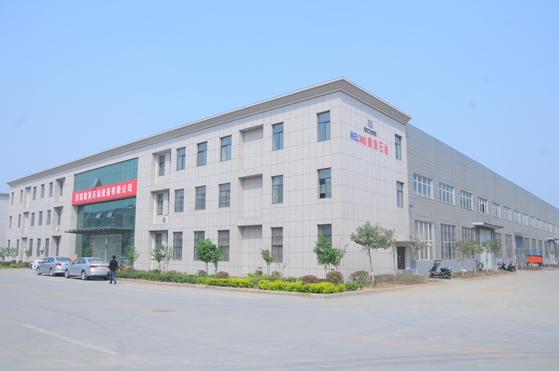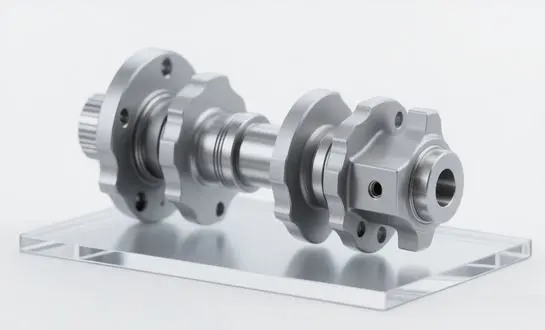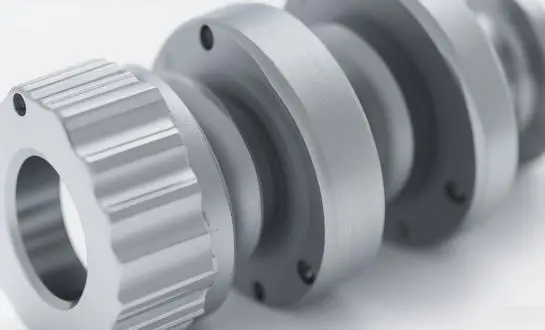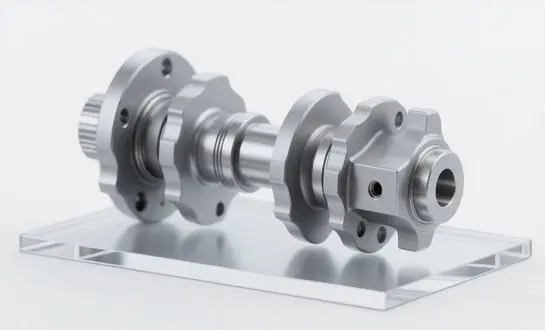From AI-driven process optimization to the incorporation of novel alloys, the realm of shaft forging is undergoing a transformative shift. This evolution is not merely about enhancing productivity; it's about reimagining the entire lifecycle of forged components. As we delve into the future trends of shaft forging, we'll explore how these advancements are set to redefine the standards of durability, performance, and environmental responsibility in industrial equipment design.
How Will AI and Automation Revolutionize Shaft Forging Processes?
The integration of artificial intelligence and automation in shaft forging processes marks a significant leap forward in manufacturing capabilities. AI-powered systems are now capable of analyzing vast amounts of data to optimize forging parameters, resulting in unprecedented precision and consistency in the production of forged shafts.
Machine Learning for Enhanced Process Control
Machine learning algorithms are being employed to predict and mitigate potential defects in the forging process. These intelligent systems can adjust forging temperatures, pressures, and timing in real-time, ensuring optimal material flow and grain structure. This level of control not only enhances the quality of forged shafts but also significantly reduces waste and energy consumption.
Robotic Assistance in Forging Operations
Advanced robotics are increasingly being integrated into shaft forging operations. These robotic systems can handle complex forging tasks with precision and consistency that surpass human capabilities. From material handling to die changes, robots are streamlining the forging process, leading to higher productivity and improved worker safety.
Predictive Maintenance and Quality Assurance
AI-driven predictive maintenance systems are revolutionizing equipment upkeep in shaft forging facilities. By analyzing equipment performance data, these systems can forecast potential failures before they occur, minimizing downtime and extending the lifespan of forging machinery. Additionally, AI-powered quality assurance tools are enabling real-time inspection of forged shafts, ensuring that each component meets stringent quality standards.
Sustainable Forging: Eco-Friendly Trends in Shaft Manufacturing
The push towards sustainability is reshaping the shaft forging industry, with manufacturers adopting eco-friendly practices and technologies to reduce their environmental footprint. This shift is not only driven by regulatory pressures but also by a growing awareness of the long-term benefits of sustainable manufacturing.
Energy-Efficient Forging Techniques
Innovative energy-efficient forging techniques are being developed to minimize the carbon footprint of shaft production. These include the use of induction heating systems that offer precise temperature control and reduced energy waste compared to traditional gas-fired furnaces. Additionally, regenerative braking systems are being implemented in forging presses to recover and reuse energy during the forging cycle.
Recycling and Closed-Loop Material Systems
The implementation of closed-loop material systems in shaft forging is gaining traction. These systems aim to recycle and reuse materials throughout the manufacturing process, significantly reducing waste and raw material consumption. Advanced sorting and processing technologies are enabling the efficient recovery of high-quality metal from forging scrap, which can be reintegrated into the production cycle.
Biodegradable Lubricants and Cleaner Die Materials
The development and adoption of biodegradable lubricants for shaft forging operations represent a significant step towards environmental sustainability. These eco-friendly lubricants not only reduce pollution but also improve workplace safety. Moreover, research into cleaner die materials is ongoing, with the goal of creating more durable and environmentally benign forging tools.
Advanced Materials Shaping the Future of Industrial Shaft Forgings
The evolution of material science is opening new possibilities in shaft forging, enabling the creation of components with enhanced properties and performance characteristics. These advanced materials are set to redefine the capabilities of industrial equipment across various sectors.
High-Performance Alloys for Extreme Conditions
The development of new high-performance alloys is pushing the boundaries of what's possible in shaft forging. These advanced materials offer superior strength-to-weight ratios, improved corrosion resistance, and enhanced thermal stability. For instance, nickel-based superalloys are being engineered to withstand extreme temperatures and pressures in aerospace and power generation applications, while new stainless steel formulations are providing exceptional durability in marine environments.
Nanostructured Materials for Enhanced Properties
Nanostructured materials are emerging as a game-changer in shaft forging. By manipulating the material structure at the nanoscale, engineers can create forged shafts with unprecedented combinations of strength, ductility, and wear resistance. These nanostructured materials are particularly promising for applications in high-stress environments, such as automotive drivetrains and industrial machinery.
Composite-Reinforced Metal Matrix Forgings
The integration of composite materials into metal matrix forgings represents a cutting-edge approach to shaft design. By embedding high-strength fibers or particles within the metal matrix during the forging process, manufacturers can create shafts with tailored properties. These composite-reinforced forgings offer improved fatigue resistance, reduced weight, and enhanced vibration damping characteristics, making them ideal for applications in aerospace and high-performance automotive sectors.
As we look to the future, the landscape of shaft forging for industrial equipment design is poised for remarkable transformation. The convergence of AI-driven processes, sustainable practices, and advanced materials is ushering in a new era of innovation and efficiency in manufacturing. These developments not only promise enhanced performance and durability of forged shafts but also align with the growing global emphasis on sustainability and resource conservation.
The journey towards more intelligent, eco-friendly, and high-performance shaft forging is well underway, and its impact on industrial equipment design will be profound. As these technologies continue to evolve, they will undoubtedly open new possibilities for engineering solutions that were once thought impossible. The future of shaft forging is not just about producing components; it's about forging a path towards a more efficient, sustainable, and innovative industrial landscape.
For those seeking to stay at the forefront of these exciting developments in shaft forging and industrial equipment design, Welong stands ready to provide expert guidance and cutting-edge solutions. To learn more about our advanced forging capabilities and how we can support your industrial equipment needs, please contact us at oiltools15@welongpost.com.





